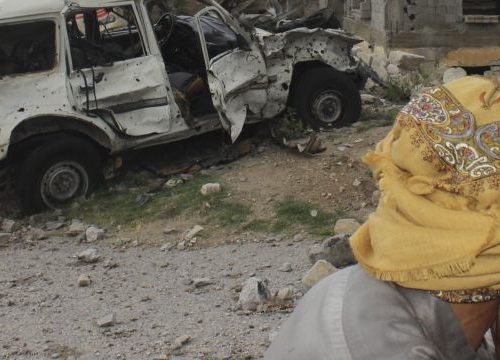War in Yemen: Psychological Impact on Individuals, Families and Communities
Event


ICRC


Three years of civil war and regional military intervention in Yemen has left the country with a crumbling economy and without a government or civil services. In 2017, the United Nations (UN) declared Yemen to be the world’s largest humanitarian crisis. As a consequence of the conflict, Yemenis face frequent exposure to violence, which, compounded by widespread economic insecurity, starvation, fractured social ties, poverty, the absence of basic services, and governmental neglect, has created a serious risk of a mental health crisis. Despite the known long-term adverse psychological effects of war, mental health issues in Yemen have largely been neglected by both domestic authorities and the international community.
The year 2018 has brought with it new challenges and opportunities. While the humanitarian situation continues to deteriorate, with 22.2 million people in need of humanitarian assistance or protection, the UN plans to host consultations with the main warring parties this December in Stockholm, Sweden. Although attempts at negotiations failed earlier this year, there is new, unprecedented momentum for the UN’s broader efforts in ending the conflict in Yemen.
The event – co-organized with the Columbia Law School Human Rights Clinic and the Sana’a Center for Strategic Studies – will focus on the implications of the war on mental health and well-being of Yemenis. It will also discuss the previous UN-sponsored peace negotiations on the conflict in Yemen, and the opportunities and challenges facing the upcoming consultations.
Opening Remarks
- Marco Sassòli, Director, Geneva Academy of International Humanitarian Law and Human Rights
MODERATOR
- Amanda McNally, Columbia Law School Human Rights Clinic
PANELISTS
- Fawziah al-Ammar, Senior Research Fellow, Sana’a Center for Strategic Studies
- Waleed Alhariri, Head of the US office, Sana’a Center for Strategic Studies
- Annyssa Bellal, Strategic Adviser on International Humanitarian Law and Senior Research Fellow, Geneva Academy of International Humanitarian Law and Human Rights








